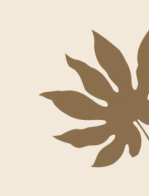Hemp clothing vs. cotton, which is the better textile?
Hemp is a textile made out of the cannabis sativa plant. It is a strong, sustainable and comfortable option compared to the industrial cotton production industry. It is also a crop that grows amazingly fast, going from seed to harvest in around four months, making it a desirable option to farm. Before you make up your mind, let’s compare hemp clothing vs. cotton fabric to learn everything about them.
Land use
Comparing land use for cultivation of hemp clothing vs. cotton, hemp plants tend to be more sustainable and have greater productivity. You can get over 50% more hemp fibre per acre than you would for cotton fibre. Hemp plants also have a faster growth rate, making land use more efficient. Today, cotton is grown internationally needing a dry climate to thrive, which is why most of the product has to be watered through irrigation systems. In general, cotton plantations are far more extensive than the ones used for hemp, which grows taller and thinner than cotton.
Water consumption
Another advantage of hemp clothing vs. cotton is that the first one grows with less water. It is a strong plant that can prosper under less ideal weather conditions. Cotton requires two to five times more water per kilogram than hemp. As a direct consequence, many cotton cultivation areas have suffered from droughts and desertification, affecting not only the environment but also the local population.
Pesticide use
Pesticides can damage soil and water around cultivation areas, and they can also gravely affect the health of agricultural workers and communities. Such is the case with cotton farming, which needs pesticides to be profitable due to the risk of plagues associated with cotton. In comparison, hemp is naturally resistant to most plant diseases and insects and works on its own to prevent damage to the crop.
Damage to cultivation soil
If you compare cotton to hemp cultivations and their impact on soil, you can determine with certainty that hemp is a much more environmentally friendly product. The entire hemp plant can be used as the long stalks produce fibre and the rest is used as fertiliser. This means that hemp itself is used to enrich the soil it grows on. Industrial cotton production is not as sustainable as it uses chemicals that severely damage the ground, lessening the soil quality.
How resistant is hemp vs. cotton?
Hemp is an incredibly strong textile. As opposed to cotton, hemp does not stretch as much due to its long-resistant natural fibres. While cotton tends to lose its shape over time, hemp is a flexible product and is four times more resistant. It does not suffer from significant water damage as it is highly resistant to moisture absorption. This helps to prevent your garments from deteriorating quickly and acquiring bad smells due to its surprising anti-bacterial properties.
How long does it take for hemp to degrade?
Hemp fabric is a biodegradable product which breaks down in a short period. This means that garments made out of this fibre have a low environmental impact as opposed to synthetic textiles. It would usually take just a few weeks for hemp to completely degrade, especially if you are looking at fully organic hemp.
Can hemp replace cotton?
Hemp is a great alternative to cotton products, as it is less damaging to the environment, and uses fewer pesticides and water. It would definitely be a more sustainable option for many. In recent years, more manufacturers and the fashion industry have started to see the benefits of using hemp vs. cotton. So, the answer is maybe! But whether you expect it or not, you will see more and more hemp products in the near future.

Experience the purest rolling sensation with Pure Hemp. Our rolling papers are crafted from 100% natural hemp, ensuring a smooth, clean burn with every use. Whether you’re a seasoned roller or just starting out, our eco-friendly papers deliver the perfect combination of durability and performance.








